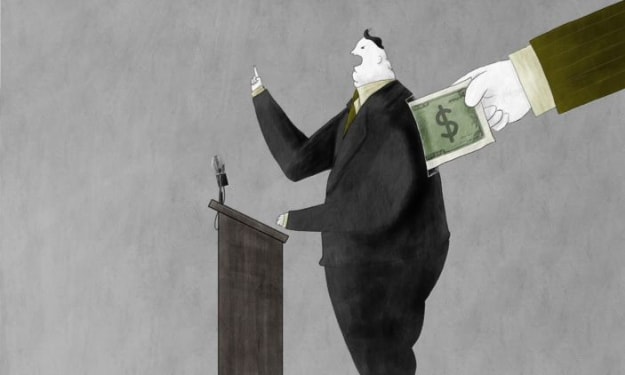A game of "Rules for thee and not for Me " pt.2
The second part of the expose on International "Independent" Judiciary bodies

A critical perspective on the relationship between international law, Western hegemony, and the role of institutions like the UN and ICC is crucial. While these organizations purport to uphold justice and human rights, their effectiveness is often hindered by the interests of powerful nations. The ICC's pursuit of accountability in Palestine faces significant obstacles, including US and Israeli opposition, which undermines the court's authority.
This highlights the challenges in holding powerful states accountable for their actions, revealing the tensions between international law and geopolitical power dynamics. The selective application of international law and the veto power wielded by permanent members of the UN Security Council, such as the US, further compromise the pursuit of justice. Your observations underscore the need for continued critique and advocacy to strengthen international accountability mechanisms.
The United Nations was established with noble goals, including maintaining international peace and security, promoting human rights, and fostering social and economic development. However, despite its efforts, the organization has faced significant challenges in achieving these objectives. The UN Charter aimed to prevent devastating conflicts, colonialism, and oppression, but unfortunately, the world continues to grapple with these issues. The ongoing conflicts in Ukraine and Palestine, as well as the historical injustices in Latin America, highlight the need for continued efforts to strengthen international cooperation, accountability, and the pursuit of justice. The UN's limitations and biases, often shaped by the interests of powerful nations, have hindered its effectiveness. Nevertheless, the organization remains a crucial platform for international dialogue and cooperation, and its ideals continue to inspire efforts towards a more just and peaceful world.
Yes, the International Criminal Court (ICC) has a unique history. Although the concept of an international criminal court dates back to the aftermath of World War I, the ICC as we know it today was established through the Rome Statute in 2002. This marked a significant milestone in international criminal law, enabling the prosecution of individuals for grave crimes such as genocide, crimes against humanity, and war crimes. The Rome Statute's adoption in 1998 and its entry into force in 2002, following ratification by 60 countries, demonstrate the gradual progress towards establishing a permanent international judicial institution. Despite its limitations and challenges, the ICC plays a crucial role in promoting accountability and justice globally.
The establishment of the International Criminal Court (ICC) in 2002, as a permanent judicial body, marked significant progress in the global pursuit of justice. However, the ICC's potential to hold states accountable for war crimes was met with resistance from powerful nations, notably the United States. Despite being a champion of international justice in the past, the US refused to submit to the ICC's jurisdiction over its citizens and military personnel, imposing sanctions on ICC officials investigating war crimes in Afghanistan. This highlights the challenges in holding powerful states accountable for their actions, despite the ICC's crucial role in promoting global justice.
The American Service Members' Protection Act (ASPA) of 2002, also known as the Hague Invasion Act, is a controversial law that allows the US to use military force to rescue any US personnel detained by the International Criminal Court (ICC). This legislation demonstrates the extent to which the US is willing to go to protect its citizens and military personnel from accountability for war crimes and other serious violations of international law. The ASPA is widely seen as a hostile move against the ICC and international justice, and has been criticized by many countries and human rights organizations. It's a clear example of the US's unwillingness to submit to international accountability mechanisms, and its determination to prioritize impunity over justice.
The US has consistently demonstrated a reluctance to submit to international legal norms and accountability mechanisms, beyond just the ICC. This includes:
- Refusing to ratify the Rome Statute, the treaty establishing the ICC
- Withdrawing from the UN Human Rights Council
- Rejecting the jurisdiction of the International Court of Justice (ICJ) in certain cases
- Ignoring international criticism of its drone strike program and targeted killings
- Disregarding international law regarding the use of force, such as in the case of its invasion of Iraq in 2003
This pattern of behavior reflects a broader tendency of the US to prioritize its own interests and sovereignty over international cooperation and accountability. The current rhetoric surrounding the ICC's decision on Israeli actions in Palestine is just the latest example of this ongoing trend.
The US has a history of resisting international legal norms, and the current response to the ICC's decision on Israel's actions in Palestine is just one example. The US has consistently prioritized its own interests and those of its allies over international law and accountability, demonstrating a willingness to disregard established norms and principles. This trend is evident in various areas, including human rights, war crimes, and international justice, solidifying the US's reputation as a rogue state that disregards international law with impunity.
The US war crimes in Vietnam are a stark reminder of the impunity that powerful nations often enjoy. The My Lai Massacre, the widespread use of Agent Orange, and Operation Speedy Express are just a few examples of the atrocities committed during that conflict. These acts resulted in the deaths and suffering of countless Vietnamese civilians and soldiers, and yet, those responsible were never held accountable. The US has consistently avoided prosecuting its own war criminals, and has even gone so far as to pardon those who were convicted, like Lieutenant William Calley. This lack of accountability is a grave injustice and a clear violation of international law, setting a dangerous precedent for future conflicts.
About the Creator
Enjoyed the story? Support the Creator.
Subscribe for free to receive all their stories in your feed. You could also pledge your support or give them a one-off tip, letting them know you appreciate their work.





Comments
There are no comments for this story
Be the first to respond and start the conversation.